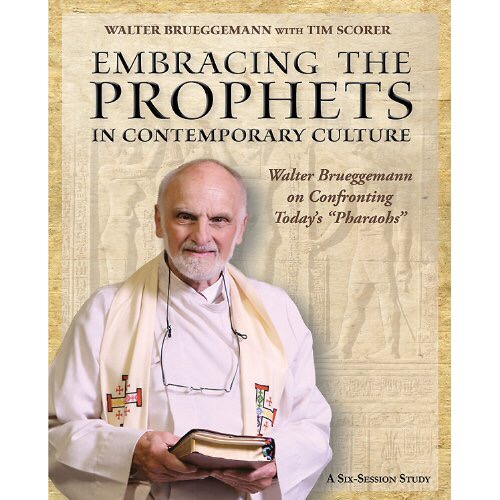Recently Missouri clergyman and commentator Brian Zahnd, a popular liberal evangelical, tweeted: “To do biblical empire critique *within an empire* is a courageous act and the essence of what it means to be prophetic. (Be prophetic!)”
Zahnd belongs to a school of thought among leftish American Protestants that equates the United States and the democratic capitalist order with Ancient Rome, Babylon or Egypt. God’s people, now as in ancient times, suffer under a demonic and idolatrous regime that the faithfully devout are called courageously to critique and resist, unto martyrdom.
The difference, of course, is that Christians in modern America, unlike in ancient Rome, are not a tiny persecuted minority living under a pagan absolutist regime that had crucified Christ and was tormenting His followers. In America, Christians are a 70-75% nominal majority under a republic largely founded by Christians or Christian influenced persons.
That republic, like all human institutions, is sinful, often corrupt, and does not by any standard attain the standards of divine justice. But it is, by frail human standards, an approximately just political arrangement compared to nearly all available alternatives. Within our nation, as in all societies everywhere, there is the Christian vocation to advocate for greater justice according to God’s high standards.
Zahnd and his anti-empire community don’t see America as generically sinful but uniquely evil in its embodiment of militarism, racism, greed, environmental degradation and oppression. And they often imply that their critique entails special godly courage. But their critique is actually in sync with many of America’s secular cultural elites. Shorn of its religious verbiage, Zahnd’s political rhetoric echoes the conventional thought of most universities, public interest advocacy groups, philanthropies, much of the media and even much of corporate America and of the government bureaucracy that administers the “empire.”
The religious anti-empire verbiage is mostly a variant of contemporary identity politics in which victimhood signifies special virtue. There is ostensibly an oppressor class, but no one wants to admit belonging to it. For Zahnd at al, the resented guilty parties are their more conservative co-religionists who purportedly have betrayed their faith by serving the empire with patriotic devotion. These traditional Christians are already mocked by cultural elites and the frequent target of attempted regulation by, ironically, the “empire.”
Resisting the empire, as these critics define it, requires no courage, as their rhetoric and assumptions are almost entirely in sync with the assumptions of decades of secular political correctness. Yet in a recently circulated short video by Old Testament scholar Walter Brueggemann, another popular liberal Protestant polemicist against empire, “military consumerism,” “greed,” “anxiety,” “idolatry” and “violence” are predictably lamented as America’s primary ungodly trademarks.
Brueggmann in his work offers a counter narrative to the empire which he terms Gospel “neighborliness,” which without irony extols the centralized federal welfare and regulatory state, effectively offering one side of the imperium against another. Zahnd, Brueggemann and other anti-empire critics, are supposedly distressed about consumerism. But they typically don’t address America’s and Western society’s commodification of human life and rejection of community and human dignity through abortion, euthanasia, recreational drugs, deconstructing marriage, family and gender, and the post modern focus on self-will through self-actualization.
If there is a supreme idolatry in the “empire” of today’s Western society it is the postmodern deification of the autonomous self at the cost of community, human dignity and truth. Christianity’s historic role in its social witness is to advocate the public good through self-denial and the mortification of self-will in favor of charity towards others.
To challenge the contemporary empire’s idolatrous cult of autonomous individualism takes true courage. But the reputed opponents of empire are not calling upon the riches of church teaching for fostering authentic human prosperity. Instead they are too often serving as unconscious handmaidens to the empire’s current fixation on reinventing reality through self will.
Zahnd, Brueggemann et al condemn the “empire” for providing the public security and economic progress required for human flourishing. But they often seem oblivious to Western secularism’s dangerous subversion of human identity as sacred image bearer of God.





Comment by Adam Shields on February 28, 2017 at 10:32 am
Seems to me that you haven’t read much of Zhand or Brueggemann if you think they haven’t critiqued individualism or consumerism.
No one can condemn every individual sin in every instance of communication.
What you seem to be asserting is that empire is less important than individualism. But even if that is true, there is nothing wrong with condemning a less important sin if it is still a sin.
Blind spots are worth pointing out. And you may be right that this is a blind spot for Zhand and Brueggemann, but that doesn’t mean that they are wrong for pointing out the issues that they are pointing out.
Comment by Lancelot Camelot on February 28, 2017 at 2:17 pm
Walter Brueggemann is a anti-Semitic theolog
https://philosproject.org/choosing-misread-review-brueggemanns-chosen/